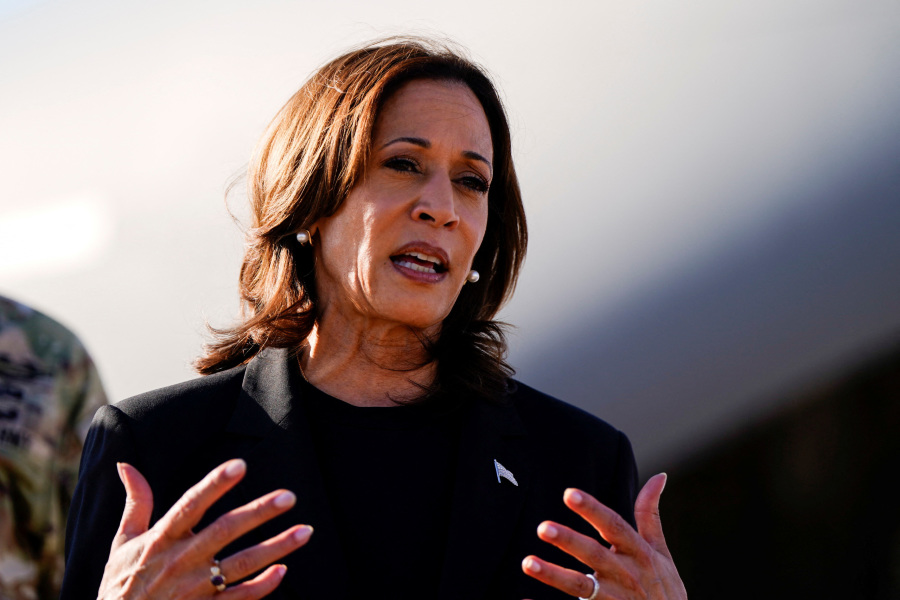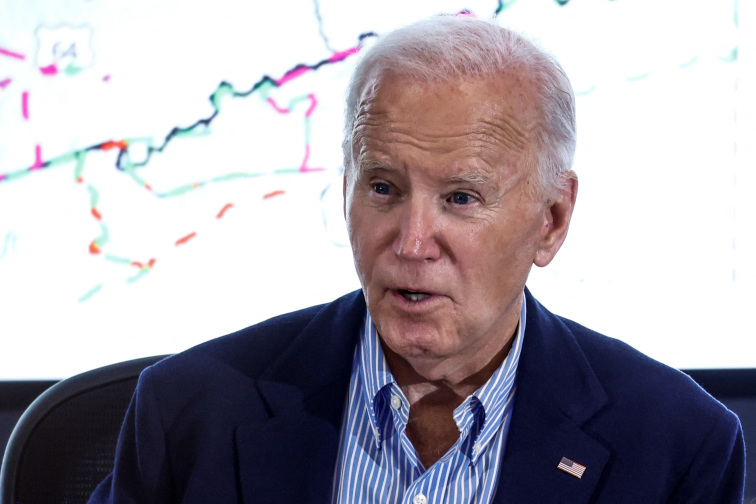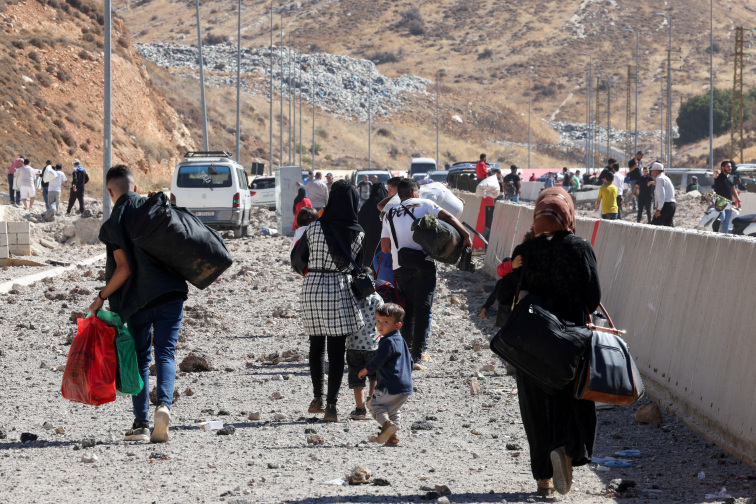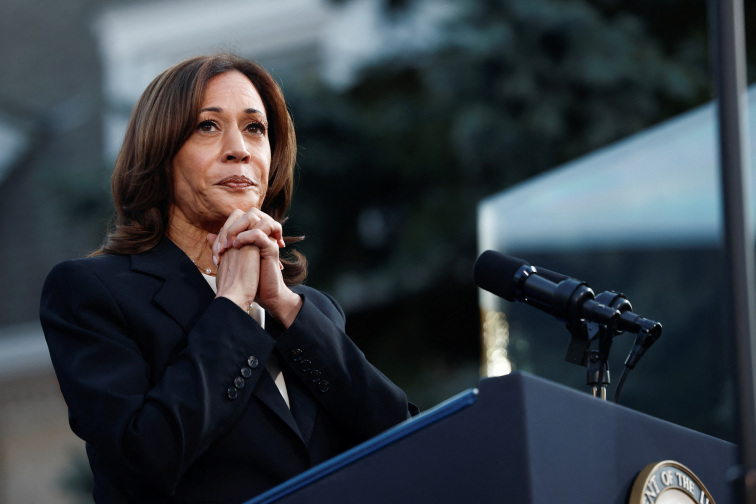Democratic presidential nominee and U.S. Vice President Kamala Harris speaks to the members of the media, following a briefing with officials, in the wake of Hurricane Helene in Charlotte, North Carolina, U.S., October 5, 2024. (REUTERS/Elizabeth Frantz)
WASHINGTON (Reuters) - Vice President and Democratic presidential candidate Kamala Harris said Washington will continue to pressure Israel and other players in the Middle East to reach a ceasefire deal in Gaza even as advocates say that the United States has not thus far used its leverage over its ally.
In an interview with CBS news show "60 Minutes," Harris said that diplomatic work with Israel is "an ongoing pursuit," according to a clip released on Sunday.
Harris sidestepped a question in the interview on whether Israeli Prime Minister Benjamin Netanyahu was a "real close ally."
"I think with all due respect the better question is do we have an important alliance between the American people and the Israeli people and the answer to that question is yes," Harris said.
Harris reiterated Washington's position to support Israel's right to self defense against Iran and Iran-backed militant groups like Palestinian Hamas and Lebanese Hezbollah.
"Now the work that we do diplomatically with the leadership of Israel is an ongoing pursuit around making clear our principles," Harris said.
"We're not going to stop in terms of putting that pressure on Israel and in the region including Arab leaders," Harris said.
Washington's occasional condemnation of Israel over the war's civilian death toll has mostly been verbal with no substantive change in policy.
Advocates say Washington has not put pressure on its ally by refusing to put an arms embargo that anti-war protesters around the United States and the world have demanded for months. Protests were also held over the weekend.
President Joe Biden laid out a three-phase ceasefire plan for Gaza on May 31 but a deal between Israel and Hamas has not been reached due to gaps in exchanges of Israeli hostages and Palestinian prisoners, and Israel's demand that it maintain presence in a corridor on the southern edge of the Gaza Strip bordering Egypt.
The latest bloodshed in the decades-old Israeli-Palestinian conflict was triggered on Oct. 7, 2023, when Hamas attacked Israel, killing 1,200 and taking about 250 hostages, according to Israeli tallies.
Israel's subsequent military assault on the Hamas-governed enclave has killed almost 42,000 Palestinians, according to the local health ministry, while displacing nearly the entire population of 2.3 million, causing a hunger crisis and leading to genocide allegations at the World Court that Israel denies.
Israel has also been separately carrying out a military campaign in Lebanon which in recent days has killed hundreds, wounded thousands and displaced over a million. Israel says it is targeting Iran-backed Hezbollah militants.
(Reporting by Kanishka Singh and Bo Erickson in Washington; editing by Mary Milliken and Diane Craft)










News magazine bootstrap themes!
I like this themes, fast loading and look profesional
Thank you Carlos!
You're welcome!
Please support me with give positive rating!
Yes Sure!